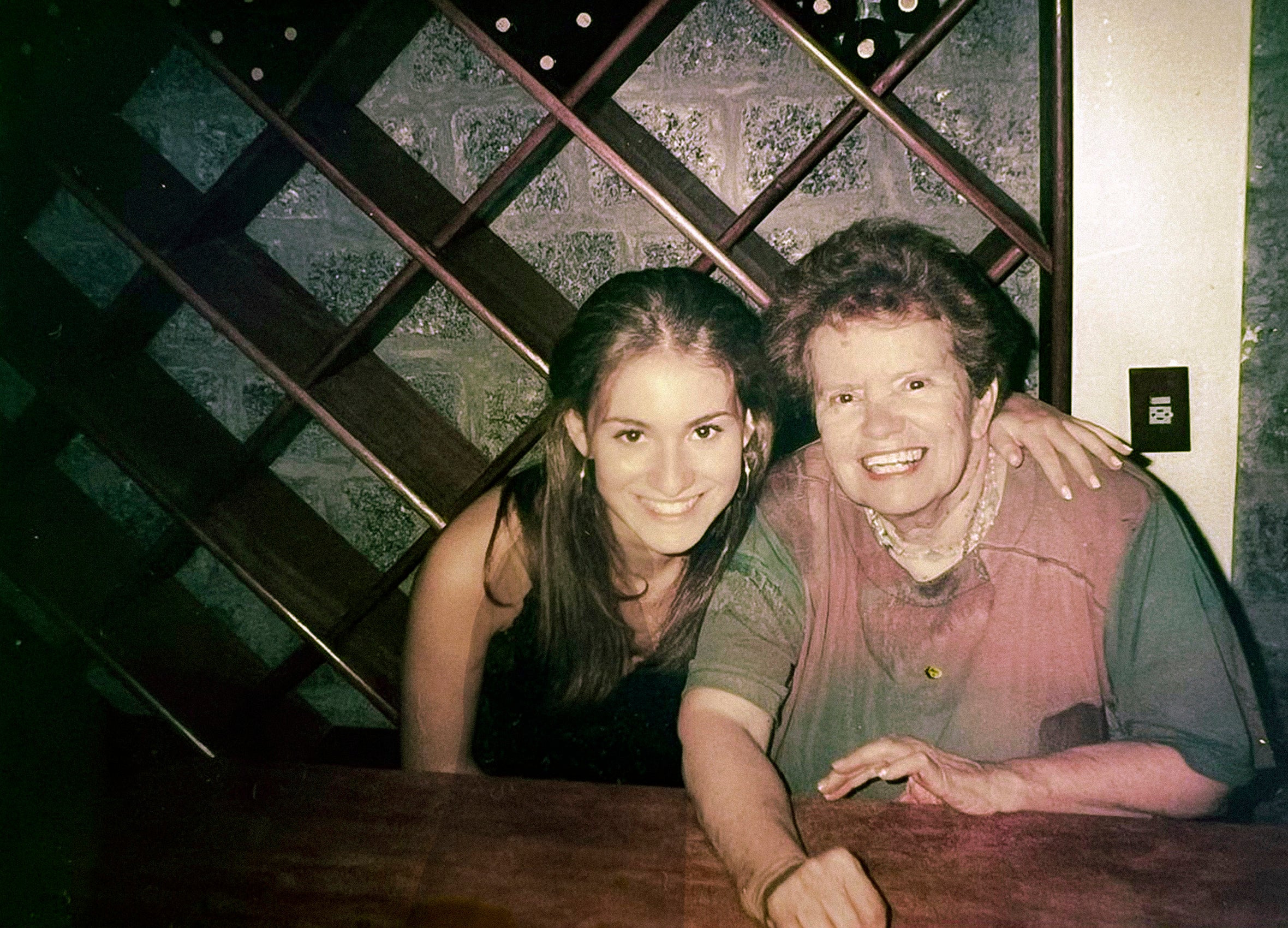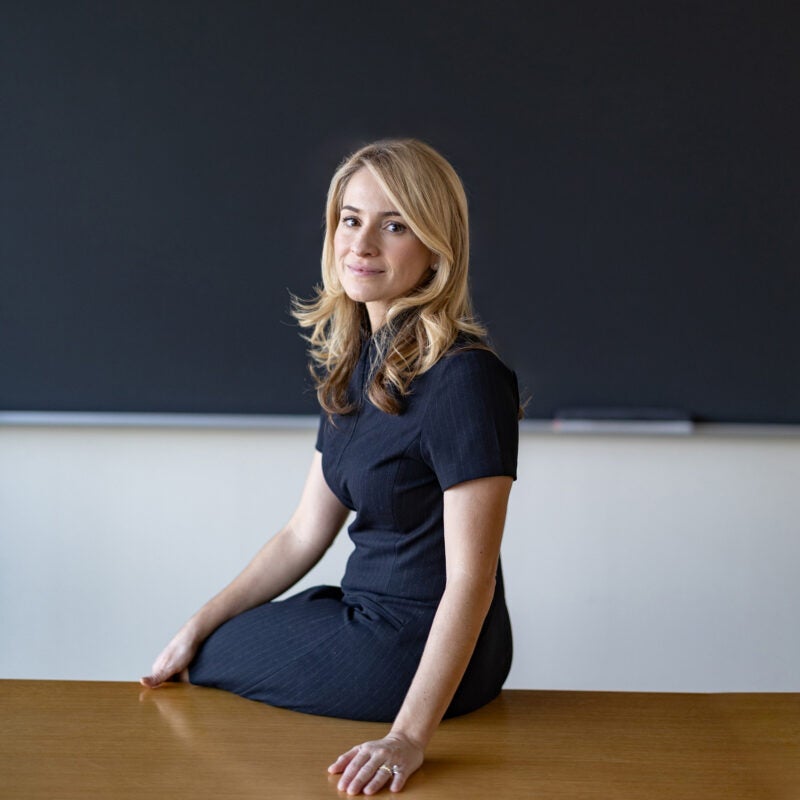Mariana Pargendler is a fifth-generation lawyer on her mother’s side. Her grandmother graduated from law school in the 1940s, at a time when there were few female students. Both of her parents were judges and law professors.
But growing up, Pargendler wasn’t interested in being an attorney. At all.
“I thought I might be a physicist or an engineer,” she says. “I wanted to make discoveries about the universe.”
Eventually, a distaste for a high school math class led her to pursue law school. She was not entirely convinced she had made the right choice. “But I loved it from the outset,” she says.
Yet, Pargendler never gave up her desire to uncover truths, to reveal the unexpected, the unusual, and the unexamined. Today a professor of corporate law and governance at Harvard Law School, she has made a career of unearthing how national and international forces shape companies and legal systems, and the underappreciated ways in which private law varies around the world.
Perhaps you could call her a scientist of the law.
“I enjoy approaching organizations in terms of making discoveries about aspects that people didn’t realize were there,” says Pargendler.
A comparative approach
A native of Brazil, Pargendler fell in love with private law while in law school there and then as an LL.M. and doctoral student at Yale Law School, first focusing on contracts and then on the evolution of corporate law and organizational forms.
Her time in school was followed by the rapid expansion of Brazilian capital markets, and she began wondering what had made this dramatic transformation possible. And what would it mean for the country’s future?
“After I delved into the field, I found it so fascinating the way corporations dominate our current social and economic life, and the role the law plays in creating them and regulating them,” she says.
“If we understand where our laws come from and the … differences we have, we can think about better laws to serve our society.”
Studying at Yale and then returning to São Paulo to teach at FGV Law School enabled Pargendler to more clearly see where corporate law in her home country and throughout the global south diverges from that in wealthier nations, including the U.S. She says that academia has not always been thorough in investigating these differences.
“Comparative scholars sometimes speak of legal families, where the ‘parent’ legal systems are those in the global north and legal systems in the global south are ‘affiliates’ and are thought to be quite similar,” she says. “But in some respects, those laws were actually quite different, weren’t captured by existing debates, and were very consequential and worthy of study.”
In “Legal Heterodoxy in the Global South,” co-edited with NYU’s Kevin Davis and published in June by Cambridge University Press, Pargendler and her collaborators examine some of these surprising distinctions. In India, for example, corporate social responsibility is not just a kind gesture or a marketing stunt — it is a requirement for some businesses. And in Argentina, as in several other Latin American countries, “there are often heightened concerns about vulnerability and inequality in consumer protection, even compared to the EU, which is usually thought of as a model in that area,” she says.
Pargendler’s own research has revealed how and why limited liability for parent companies — which is the norm in the United States — has eroded in the legal systems of developing countries. In contrast to those in the U.S., some of these systems are increasingly holding corporations responsible for the actions of their subsidiaries, she explains.
“I think there are several reasons for this,” she says. “One of them is the fact that the global south is often the recipient of foreign investment through multinational corporations that can then be involved in disasters or scandals that hurt stakeholders, such as workers and communities. By contrast, investors are typically located in the global north.”
But like their kin, systems in the global south are also in flux, Pargendler says. “I think it’s important to put them on a spectrum, not treating these realities as different planets, but as systems in dialogue with one another.”
Pargendler also enjoys examining how other unanticipated forces influence economies and legal systems. She has written about how nationalism and protectionism impact corporate law. In an influential paper published in the Washington University Law Review, she posits that international bodies — such as the World Bank, the United Nations, and the International Monetary Fund — now exert non-negligible power over domestic corporate law.
“Those international organizations have become very important forces in shaping corporate law trends around the world,” she says. “It’s essential to realize the importance of these forces, because we’ve always thought about the U.S. spreading ideas on corporate law, and we certainly see that, but we now also see the U.S. being a recipient of ideas generated within what I’ve termed ‘international corporate law.’”

An example, she says, is the rise of environmental, social, and governance standards as a framework for evaluating companies, which originated in the U.N. But Pargendler also warns that it can be hard to predict the long-term effect of these “soft” pressures: “This cosmopolitan vision promoted by international corporate law can also prompt nationalistic backlash.”
On a practical level, Pargendler says, it makes sense for corporate lawyers to study what other nations do. Given the interdependence of global economies today, it’s important to understand how jurisdictions can and do interact, and how one system might respond to developments in another, she says. “It can expand our institutional imagination about the contours of law.”
A comparative approach may also be helpful for comprehending one’s own laws, Pargendler insists. “You can denaturalize some of the features of your own system if you are able to see that they are not absolutely necessary.”
Comparing systems can even “give us a sense of the forces that shape various areas of law,” which means we can better guess where the law is heading in the future, she says.
The joy of discovery
A member of Harvard Law’s faculty since 2024, Pargendler says she still appreciates the joy of discovery — and sharing that with her students.
“Law is hard. There are real trade-offs and various ways of balancing interests, and people have competing views,” she says. “My hope is that my students come away better able to see the role of the law in shaping the world, and how they might make a difference.”
Her own research will continue to investigate how legal systems in the global south compare with one another and with those in the global north, as well as how nationalism shapes corporate law. To understand economies, Pargendler says, it’s essential to scrutinize the forces that impact private law systems.
“The assumption of sameness has not served us well,” she says. “These differences are very often highly consequential and deserve to be studied, whether we like them or not.”
Although she is not exactly a scientist, Pargendler feels that her career is even more gratifying than she could have imagined as a child. For one thing, lawyers have the power to make change, she says.
“The laws that we have are not the laws of nature, which we can’t alter. Instead, if we understand where our laws come from and the spectrum of differences that we have, we can think about better laws to serve our society.”
